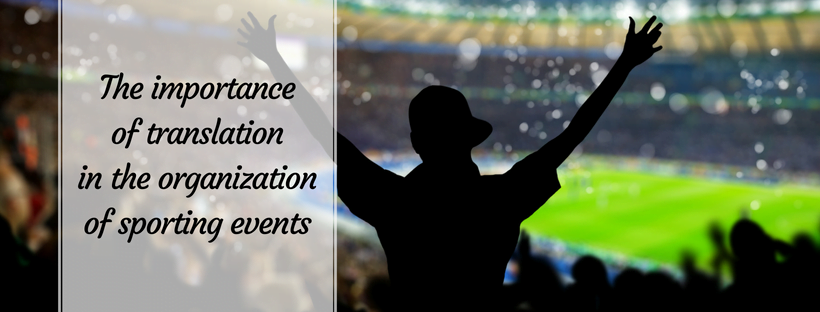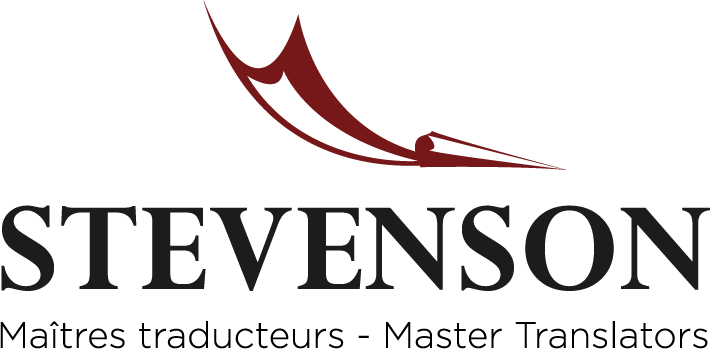
The importance of translation in the organization of sporting events
The rich context of this country’s culture and the values of its citizens stem from Canada’s two official languages: English and French. When planning a sporting event, it is crucial to start off on the right foot by enhancing your brand with top-quality translations that are adapted to your audiences. Translation, much like sports, leaves no room for guessing.
Showcasing both official languages
Athletes, spectators, visitors, journalists, organizers, and the general public expect to be immersed in a context that highlights the languages of both Shakespeare and Molière, and to be able to access information in the language of their choice. According to Graham Fraser, Commissioner of Official Languages, the organization of every major sporting event should follow the same process as that used for the Vancouver Olympic Games, to ensure the omnipresence of both languages. To further this goal, he published Organizing a Major Sporting Event in Canada: A Practical Guide to Promoting Official Languages, a complete guide on recommended procedures when planning these kinds of events.
Statistically speaking, when we address Canadians in both languages, we have the potential to reach 98% of the population, compared to only 75% if the content were to be issued in English only[1]. Content in French grants access to close to 94% of the population of Quebec.
According to the Official Languages Act, especially if you collaborate with different federal government actors to set up your national or international sporting event, you have certain obligations regarding linguistic duality. You have everything to gain by contacting your official languages resource person for information to determine and implement priorities for the translation of various texts as quickly as possible.
Be aware that provincial and municipal institutions may establish their own regulations regarding the French language. It is therefore in your own interests to consult them early on in the process.
What to prioritize
If you’re not sure where to get started, contact an experienced translator who will be able to guide you. Below is a checklist to serve as a guideline in terms of the order in which your content could be translated:
- The website, or at least the section related to the organization of your sporting event;
- The visual content, to prevent publicity delays;
- Communications with guests and stakeholders: athletes, coaches, dignitaries, sponsors, journalists and other attendees, so that they can access information in the language of their choice;
- Safety signs and guidelines leading up to the event;
- Knowledge transfer reports.
A more exhaustive list of the range of content to keep in mind:
Visual content/marketing
- Promotional posters
- Presentations (online or live—PowerPoint or other visual material)
- Various publicity formats (paper, online, television).
Administrative content
- Agendas and minutes
- Programs and applications
- Registration forms
- Guidelines, guides, and responsibilities of participants, including the management of volunteers.
Internal and external communications content
- Website, frequently asked questions, blog, and newsletters
- Safety instructions and signs at the event venue(s)
- Press releases
- Audio and video interviews
- Documents pertaining to meetings of the organizing committee
- Biographies and profiles of the athletes and coaches
- Sponsorship requests and letters of appreciation for sponsors
- Programs, activity schedules, and descriptive texts
- Opening and closing remarks for the event
- Sports discipline results.
Content highlighting the city hosting the event
- Documents related to tenders for obtaining bids for the preparation of fields (ex. tennis, archery)
- Information online and in newspapers on sites of interest in the municipality and the region
- News releases on changes to the hours of various businesses to accommodate the influx of tourists
- Translation of tourist-friendly materials: Menus, retail sales specials, services available, etc.
More than a short-term assignment
As a concrete example, Stevenson & Writers was awarded the translation mandate for the 2013 Summer Games in Sherbrooke. Although the event was scheduled for August 2013, translation work began in April 2012. During the first few months, the documents translated included agendas, minutes, and press releases. Following that, there were rules that were submitted, guides for volunteers, biographic profiles of the competitors, as well as information for visitors and athletes. Over the course of a year and a half, during the Games themselves, and even after the event, content for translation continued to be submitted.
The information to be disseminated before, during, and after an event is varied and substantial. Speeches, messages, results, as well as other information need to be provided. A team of professional translators, like that at Stevenson & Writers, will effectively and efficiently meet your translation needs until the closure of the event, and beyond, if you so wish. Reports and other documents may also be translated, such as a final report to be issued to the media and published online.
Stevenson & Writers looks forward to discussing your event’s translation needs.


Leave a Reply